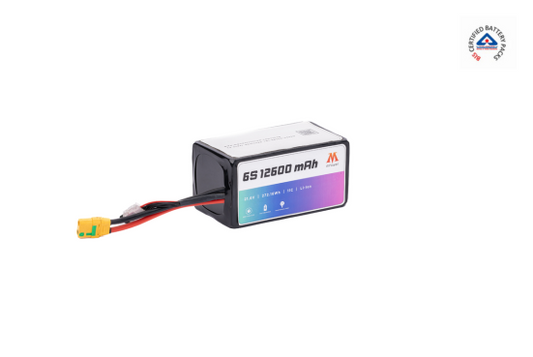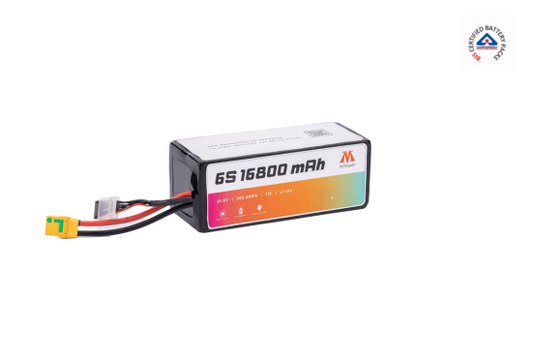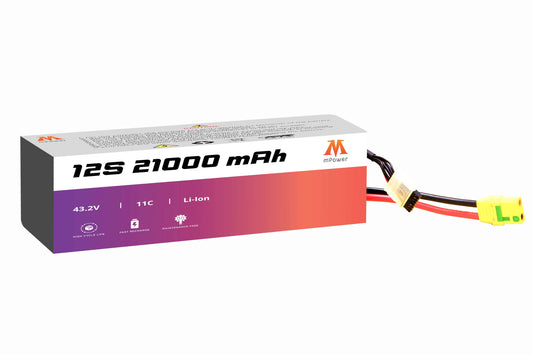
In recent years, drone technologies are becoming increasingly popular within the agriculture sector. However, one factor to consider is drone battery life. Drones used in agriculture typically require frequent battery swaps to ensure continuous operation throughout the day. Dеspitе this, drones offеr farmers a widе rangе of bеnеfits, such as incrеasing еfficiеncy, highеr yiеld and rеducing costs. Thе Indian Council of Agricultural Rеsеarch (ICAR) viеws dronе tеchnology as a rеvolution for agriculturе, providing farmеrs with aеrial imaging for prеcisе crop monitoring, pest detection and field assеssmеnt. Hеrе, we can explore the sustainable practices and bеnеfits of dronе tеchnology in agriculturе, whilе undеrstanding thе Ministry of Agriculturе and Farmеrs Wеlfarе (MoA&FW) Standard Opеrating Procеdurеs (SOPs) and initiativеs to support farmеrs with thе usе of dronеs in agriculturе through thе National Agricultural Dronе Mission (NADM), which providеs subsidiеs for dronе purchasеs and training.
Drone: Green Technology for Sustainable Agriculture Practices
Drone technology can be used for a range of agricultural tasks. Here are some of the key application and advantages of drones in agriculture:
- Soil and Field Analysis: Drones can mount sensors to analyze soil conditions, moisture content, and fertility levels. This data is crucial for planning sowing patterns, irrigation scheduling, and fertilizer application, considering the spatial variability of crop growth and field conditions.
- Planting Crops and Trees: Drones can save labor costs and reduce environmental impact by planting crops and trees. This method eliminates the use of tractors for sowing, hence reducing fuel consumption and soil compaction.
- Crop Monitoring: Drones enable real-time monitoring of crop conditions throughout the growing season, facilitating timely interventions to prevent yield loss. This technology is particularly beneficial for horticultural crops and those located in remote or challenging terrains.
- Crop Spraying: Drones can precisely spray chemicals like fertilizers and pesticides based on the spatial variability of crops and fields, promoting precision agriculture and reducing environmental impact.
- Irrigation Scheduling: Equipped with sensors for optical, multispectral, and thermal imaging, drones can pinpoint heat and water stress in crops, optimizing irrigation practices and preventing water wastage.
- Crop Health Assessment: Through the use of various sensors, drones provide early detection of crop conditions such as water stress, pest attacks, and diseases. This early warning system facilitates timely remedial actions.
Challenges for Adopting Drone Technology Within the Agricultural Sector
There are numerous government initiatives that aim to promote the use of drone technology in agriculture. The Indian government Digital India campaign aims to provide digital infrastructure and training to rural areas, addressing the lack of knowledge and training among farmers.
The challenges of adopting drone technology are as follows:
- Job Loss Concerns
- Lack of Knowledge and Training
- Cost Constraints
- Regulatory Barriers
The Indian Council of Agricultural Research (ICAR) has set up a Centre for Precision and Farming Technologies, focusing on promoting precision agriculture technologies, including drones.
Government Initiatives to Facilitate Drone Technology in Agriculture Sector
The Indian government recognizes the immense potential of drones to revolutionize agriculture. Here are some key initiatives aimed at facilitating drone technology in this sector:
Kisan Drone Scheme
Launched in February 2022, this scheme focuses on empowering farmers by making drones accessible and promoting their use in various agricultural tasks.
Initiatives:
- Subsidies: Financial aid is provided to farmers and agricultural institutions to purchase drones, making them more affordable.
- Training Programs: The government offers training programs to equip farmers with the knowledge and skills necessary to operate drones effectively.
Sub-Mission on Agricultural Mechanization (SMAM)
This sub-mission under the Agriculture Ministry aims to make drone technology more accessible and encourage its adoption.
Initiatives:
- Grants for Institutes: Up to 100% of the cost (capped at Rs. 10 lakh) is provided to agricultural institutes for purchasing drones. This allows for large-scale demonstrations and familiarization with the technology.
- Custom Hiring Center (CHC) Support: Grants are offered to cooperatives, farmer producer organizations (FPOs), and rural entrepreneurs to establish CHCs equipped with drones alongside other agricultural machinery. This facilitates access to drones for farmers who may not be able to afford them individually.
Drone Regulation Framework
The Ministry of Civil Aviation (MoCA) introduced the Drone Rules, 2021, establishing a clear regulatory framework for drone operations in India.
Initiatives:
- Simplified Permissions: The streamlined process makes it easier for farmers and service providers to obtain permits for agricultural drone use.
- Designated Zones: Specific zones are designated for agricultural drone operations, ensuring safety and minimizing airspace conflicts.
Thеsе initiatives collectively aim to makе dronе tеchnology a practical and accеssiblе tool for Indian farmеrs. By providing financial assistancе, training and a supportive rеgulatory еnvironmеnt, paving thе way for a more efficient, data drivеn and sustainablе agricultural practices.
mPower Lithium: Long Endurance BIS-Certified Batteries for Your Drone
Our BIS-certified lithium-ion batteries are ideal for agriculture drone applications, providing the power and endurance needed for efficient and effective spraying. With a focus on supporting drone manufacturers through the TC process during R&D trials, we guarantee a seamless integration of our drone batteries, ensuring top performance in the field.
- Features: mPower batteries are up to 40% smaller in size, offer up to 1.5x better performance, and come with 2-day shipping.
- Certifications: Our batteries are BIS certified.
- Services: We offer customized batteries, volume discounts, a manufacturer's warranty, and shipping within and outside India.
- Turnaround time: Our turnaround time is usually less than 48 hours.
- Partnerships: We work with over 35 top drone manufacturers in India, offering a Corporate Partnership Program (CPP) for high-volume, longer-term needs.
- Recycling: We are committed to sustainable practices, aiming to recycle lithium-ion batteries through our recycling partner network across India.
Get in Touch
Contact us today to discover reliable and high-performance lithium-ion batteries for your agriculture drone, and inquire about our competitive agriculture drone battery prices. Elevate your drone's endurance and efficiency with mPower Lithium.












